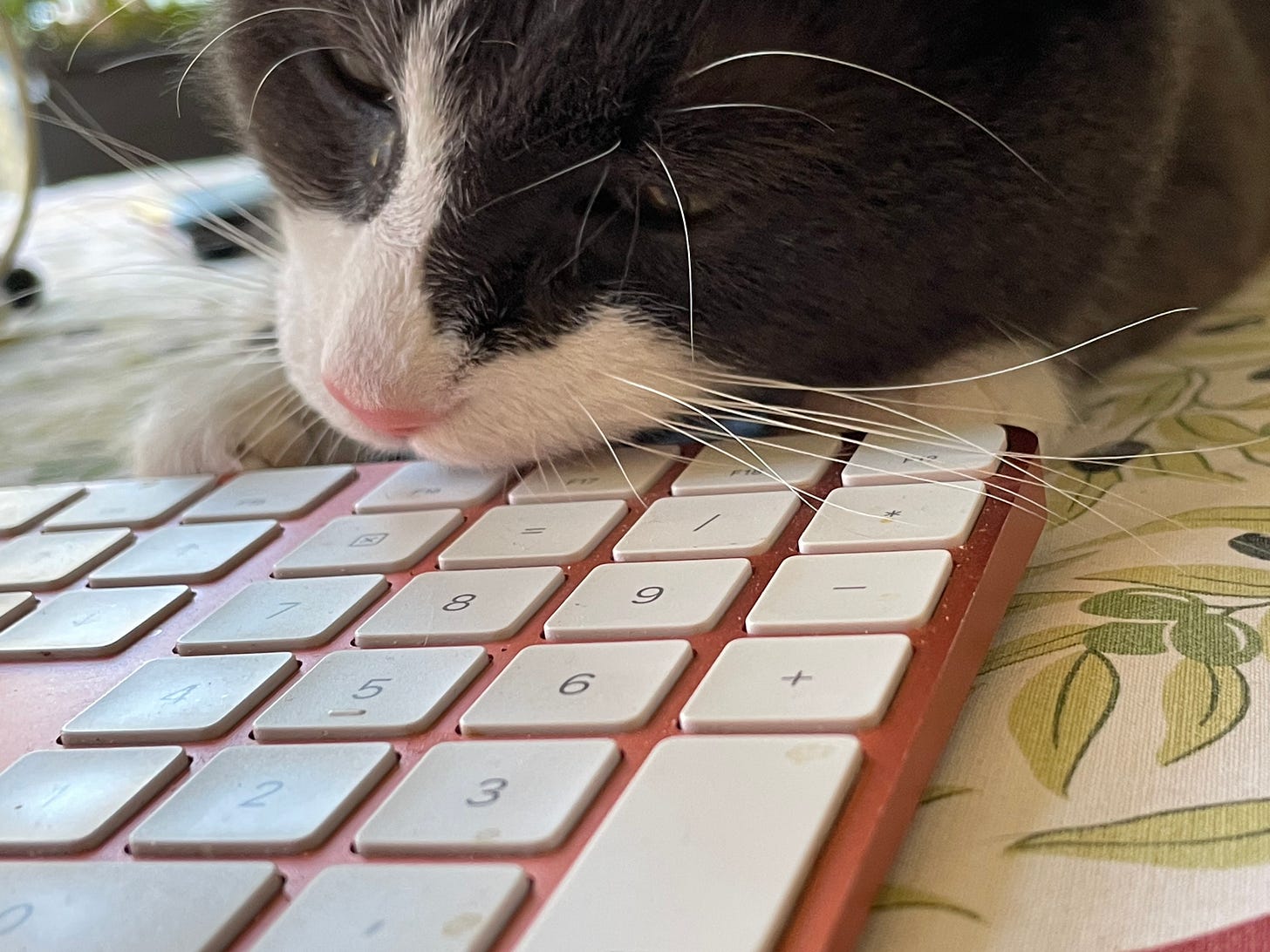
I grew up in a world where words weren’t meant for connection—they were meant for control. Conversations weren’t about understanding. They were about winning. About proving. About maintaining order.
I don’t think I even knew what a real conversation felt like for most of my life. What I knew were interactions loaded with unspoken rules. The hierarchy was clear. Some voices mattered more. Some words were permitted. Some topics—taboo. And to survive, I adapted. I learned to read between the lines, anticipate reactions, adjust myself before a single word left my mouth.
Silence wasn’t an absence of sound. It was strategy.
It took me decades to see what I was actually up against. These weren’t just personal failings or individual dynamics. These were self-sustaining systems—designed to keep power right where it was, ensuring that questioning authority felt like rebellion, and maintaining peace meant swallowing my own voice.
This is the weight of systemic power. And if we don’t see it, we end up reinforcing it.
Communication fails because of a system of control
If you've ever left a conversation feeling drained, uncertain, or like you’ve somehow lost without ever knowing the rules of the game, you’ve met this system firsthand.
Communication doesn’t fail because people don’t know how to listen. It fails because power shapes the way we speak, hear, and understand. It dictates the tone, the pace, the allowed margins of disagreement.
Think about it:
Who in a conversation gets interrupted without consequence?
Who is expected to justify their emotions while others are assumed credible just for existing?
Who has to phrase things “just right” to be taken seriously, while others can speak without fear of dismissal?
Power is written into every exchange. If you don’t recognize it, it’s not because it’s not there. It’s because you’ve been conditioned to accept it as normal.
Growing up in Germany, I was trained for precision, discipline, obedience. These are good tools. What I wasn’t trained for was space. Holding space for uncertainty, for emotions that didn’t fit into neat categories, for the possibility that being right was less important than being whole.
I was taught how to function at 200%, yet I wasn’t taught how to express my needs at all. Conversations weren’t about exchange. They were about correction, defense, survival.
And that’s not just Germany—that’s how hierarchical, control-based systems operate everywhere.
If you’re in a workplace where ideas are shot down before they land, you’ve met this system.
If you’ve grown up in a family where elders dictate and children comply, you’ve met this system.
If you’ve been in a relationship where one person dictates the emotional climate and the other adapts, you’ve met this system.
I didn’t just meet it. I lived inside it.
The self-sustaining nature of power
Power doesn’t just exist—it protects itself.
The most effective systems of control don’t need enforcers. They don’t need violence or explicit threats. They just need conditioning.
If questioning power is framed as disrespect, no one questions it.
If people equate confidence with competence, quiet voices will never be heard.
If emotions are dismissed as irrational, then logic becomes the only valid language.
If women or marginalized voices are told they must “prove” their expertise, the system wins before the first word is spoken.
This is how power protects itself without force.
I know this intimately. I learned early that my presence had a price. That my voice came with a cost. That speaking up meant inviting consequences—dismissal, disapproval, emotional withdrawal.
And when something is costly, we learn to avoid it. And we learn to adapt to it.
I learned to phrase things softly. To question my own thoughts before anyone else had the chance to. I learned that if my words weren’t carefully crafted, they’d be misunderstood—and that misunderstanding would be my responsibility.
What I didn’t realize at the time was how little this had to do with me.
It was about keeping power exactly where it was.
How I began to break free
I didn’t wake up one day and suddenly reclaim my voice. It didn’t happen all at once.
It happened in a hundred small moments of refusal.
The first time I said, That’s not okay, and let the silence sit instead of rushing to soften it.
The first time I asked, Can you clarify what you mean? instead of immediately assuming I was wrong.
The first time I sat in discomfort rather than smoothing things over.
These weren’t grand acts of rebellion. They were acts of reclamation.
And once I started observing, I saw it everywhere.
I saw how some people weaponized ambiguity—using vague words and shifting meanings to maintain control.
I saw how some people derailed conversations the moment accountability was introduced.
I saw how defensiveness was rarely about pain—it was about maintaining dominance.
And so, I stepped away from the role I once played.
I reshaped how I communicated.
I set boundaries without the need for elaborate explanations.
I asked direct questions without softening them for comfort.
I walked away from exchanges that were never true conversations.
I am allowed all of this.
To decline a conversation—whether for now or entirely.
To hold my own opinions without apology.
To voice objections without seeking permission.
And I have learned that beginning any conversation without justification or apology serves me well.
It was uncomfortable. It still is at times.
And for the first time, I felt free.
How a shift in perspective started to break the cycle
These systems do not break because I fight harder. They break because I stop feeding them.
Power that relies on manipulation collapses when manipulation stops working.
Control that depends on silence crumbles when silence is replaced with clarity.
So how do you break it?
Individually, it starts with awareness.
Recognize the patterns. Who controls the flow of conversation? Who is expected to accommodate?
Refuse to engage in control-based dynamics. If someone demands compliance rather than collaboration, step back.
Speak in ways that disrupt the script. If you are expected to soften your words, try directness. If you are expected to defer, hold firm.
Stop explaining your worth. You do not owe justification for existing as you are.
Systemically, power itself has to be rethought.
Power does not have to mean power over. It can mean power to.
The power to create space instead of taking it.
The power to include rather than exclude.
The power to build systems that are not designed for control, but for agency, for fluidity, for negotiation.
A poem about Agency
100mg of Agency I grew up counting words like currency, Spent in silence, hoarded for safety. Conversations—battles, not bridges, Meaning measured in control. I learned to fold my voice, Soft edges, careful tones, A diplomat in my own life, Speaking in whispers, never in stone. Then one day, a breath— Unmeasured, uncurled, unbound. I asked, I challenged, I stood. No permission, no preface. Power flinched. Silence cracked. The air shifted, lighter. A dose of clarity, a pulse of self, 100mg of agency dissolving the chains. I don’t whisper anymore. I speak. And I take up space.
The Freedom of Clarity
Breaking free isn’t about winning an argument.
It’s about choosing how you engage.
It’s about recognizing the forces that keep you small—and refusing to shrink.
It’s about unlearning the belief that power is something to fear, rather than something to use intentionally, ethically.
I don’t have all the answers.
Yet I know this:
Communication is never just personal.
It is political. It is structural.
As Paul Watzlawick put it, “We cannot not communicate.”
Silence speaks. A nod, a wave, the lift of an eyebrow, the curve of a mouth—whether shy or derisive—every gesture, every word, is communication.
And it is ours to reclaim.
When we refuse to uphold systems built on silence, compliance, or manipulation, we open the door to something truly radical.
Because when we stop perpetuating systems that rely on silence, compliance, or manipulation—we open the door to something radical.
Something transformative.
Something free.
I am glad walking this path with you beside me. Thank You for reading.
❤️ If you find this piece meaningful, consider clicking the heart at the top or bottom of the post. It helps others discover this newsletter and brightens my day.
Support My Work: Subscribe and Contribute
If this reading resonates with you, great! And if not, no worries. Take whatever may be helpful and leave the rest.
If my writing, art, and recipes resonate with you, I would be incredibly grateful if you would consider supporting my work with a paid subscription to Wild Lion*esses Pride.
If a monthly or annual subscription isn’t feasible for you right now, you can also show your support with a one-time tip via my Tip Jar here.
Thank you for your kindness and generosity—it truly makes a difference. Together, we’re creating a space of reflection, creativity, and connection, and I’m so grateful you’re part of this journey
Greetings from Monty! Thank You for all your contribution to my cat food!















Share this post